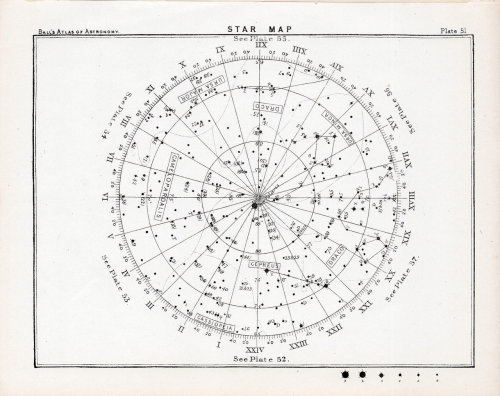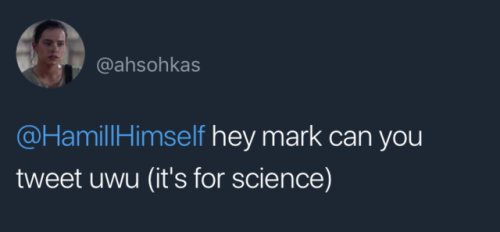Delightfulskywalker - 🥀

More Posts from Delightfulskywalker and Others






star wars



What are Pulsars?
Pulsars are spherical, compact objects that are about the size of a large city but contain more mass than the sun. Discovered in 1967, pulsars are fascinating members of the cosmic community.
From Earth, pulsars often look like flickering stars. On and off, on and off, they seem to blink with a regular rhythm. But the light from pulsars does not actually flicker or pulse, and these objects are not actually stars.
Pulsars radiate two steady, narrow beams of light in opposite directions. Although the light from the beam is steady, pulsars appear to flicker because they also spin. It’s the same reason a lighthouse appears to blink when seen by a sailor on the ocean: As the pulsar rotates, the beam of light may sweep across the Earth, then swing out of view, then swing back around again. To an astronomer on the ground, the light goes in and out of view, giving the impression that the pulsar is blinking on and off. The reason a pulsar’s light beam spins around like a lighthouse beam is that the pulsar’s beam of light is typically not aligned with the pulsar’s axis of rotation.
Click here to see the animation
Click here to hear the pulsars sound







han solo icons >> pack 3
please like and/or reblog if you take feel free to ask for a different colour
all icons | icon page | request here
21082017
Eclipse Across America
August 21, 2017, the United States experienced a solar eclipse!

An eclipse occurs when the Moon temporarily blocks the light from the Sun. Within the narrow, 60- to 70-mile-wide band stretching from Oregon to South Carolina called the path of totality, the Moon completely blocked out the Sun’s face; elsewhere in North America, the Moon covered only a part of the star, leaving a crescent-shaped Sun visible in the sky.

During this exciting event, we were collecting your images and reactions online.
Here are a few images of this celestial event…take a look:

This composite image, made from 4 frames, shows the International Space Station, with a crew of six onboard, as it transits the Sun at roughly five miles per second during a partial solar eclipse from, Northern Cascades National Park in Washington. Onboard as part of Expedition 52 are: NASA astronauts Peggy Whitson, Jack Fischer, and Randy Bresnik; Russian cosmonauts Fyodor Yurchikhin and Sergey Ryazanskiy; and ESA (European Space Agency) astronaut Paolo Nespoli.
Credit: NASA/Bill Ingalls

The Bailey’s Beads effect is seen as the moon makes its final move over the sun during the total solar eclipse on Monday, August 21, 2017 above Madras, Oregon.
Credit: NASA/Aubrey Gemignani

This image from one of our Twitter followers shows the eclipse through tree leaves as crescent shaped shadows from Seattle, WA.
Credit: Logan Johnson

“The eclipse in the palm of my hand”. The eclipse is seen here through an indirect method, known as a pinhole projector, by one of our followers on social media from Arlington, TX.
Credit: Mark Schnyder

Through the lens on a pair of solar filter glasses, a social media follower captures the partial eclipse from Norridgewock, ME.
Credit: Mikayla Chase

While most of us watched the eclipse from Earth, six humans had the opportunity to view the event from 250 miles above on the International Space Station. European Space Agency (ESA) astronaut Paolo Nespoli captured this image of the Moon’s shadow crossing America.
Credit: Paolo Nespoli

This composite image shows the progression of a partial solar eclipse over Ross Lake, in Northern Cascades National Park, Washington. The beautiful series of the partially eclipsed sun shows the full spectrum of the event.
Credit: NASA/Bill Ingalls
In this video captured at 1,500 frames per second with a high-speed camera, the International Space Station, with a crew of six onboard, is seen in silhouette as it transits the sun at roughly five miles per second during a partial solar eclipse, Monday, Aug. 21, 2017 near Banner, Wyoming.
Credit: NASA/Joel Kowsky
To see more images from our NASA photographers, visit: https://www.flickr.com/photos/nasahqphoto/albums/72157685363271303
Make sure to follow us on Tumblr for your regular dose of space: http://nasa.tumblr.com
Anxiety is like constantly hearing the battle or enemy music but never seeing the actual threat.
If you’re not amazed by the stars on a clear night then we won’t work.
Han Solo,Princess Leia and Lando Calrissian

-
 perfectlycautious reblogged this · 3 months ago
perfectlycautious reblogged this · 3 months ago -
 perfectlycautious liked this · 3 months ago
perfectlycautious liked this · 3 months ago -
 questlog reblogged this · 2 years ago
questlog reblogged this · 2 years ago -
 questlog liked this · 2 years ago
questlog liked this · 2 years ago -
 69shrimp reblogged this · 2 years ago
69shrimp reblogged this · 2 years ago -
 69shrimp liked this · 2 years ago
69shrimp liked this · 2 years ago -
 dickmaster420 reblogged this · 2 years ago
dickmaster420 reblogged this · 2 years ago -
 dickmaster420 liked this · 2 years ago
dickmaster420 liked this · 2 years ago -
 tiazyl-archive reblogged this · 2 years ago
tiazyl-archive reblogged this · 2 years ago -
 mindnot-that-much liked this · 2 years ago
mindnot-that-much liked this · 2 years ago -
 myblackwings reblogged this · 2 years ago
myblackwings reblogged this · 2 years ago -
 wayneinteressierts liked this · 2 years ago
wayneinteressierts liked this · 2 years ago -
 whimsical-disturbia liked this · 2 years ago
whimsical-disturbia liked this · 2 years ago -
 angelique-cogo reblogged this · 2 years ago
angelique-cogo reblogged this · 2 years ago -
 musiclover2732 liked this · 2 years ago
musiclover2732 liked this · 2 years ago -
 monstruocities reblogged this · 2 years ago
monstruocities reblogged this · 2 years ago -
 you-promised-me-the-world reblogged this · 2 years ago
you-promised-me-the-world reblogged this · 2 years ago -
 igivewhatigot liked this · 2 years ago
igivewhatigot liked this · 2 years ago -
 620810 liked this · 2 years ago
620810 liked this · 2 years ago -
 a-hospital--for-souls reblogged this · 2 years ago
a-hospital--for-souls reblogged this · 2 years ago -
 aesthetic72things liked this · 2 years ago
aesthetic72things liked this · 2 years ago -
 untouchable7 reblogged this · 2 years ago
untouchable7 reblogged this · 2 years ago -
 tiazyl-archive liked this · 2 years ago
tiazyl-archive liked this · 2 years ago -
 vjestackisarkazam liked this · 2 years ago
vjestackisarkazam liked this · 2 years ago -
 i-ncomum reblogged this · 2 years ago
i-ncomum reblogged this · 2 years ago -
 i-ncomum liked this · 2 years ago
i-ncomum liked this · 2 years ago -
 nedostupankorisnik reblogged this · 2 years ago
nedostupankorisnik reblogged this · 2 years ago -
 yourhandsonmine reblogged this · 2 years ago
yourhandsonmine reblogged this · 2 years ago -
 snowkflakes reblogged this · 2 years ago
snowkflakes reblogged this · 2 years ago -
 myimaginarykingdom reblogged this · 2 years ago
myimaginarykingdom reblogged this · 2 years ago -
 daleynis15 liked this · 2 years ago
daleynis15 liked this · 2 years ago -
 hopefulladydream liked this · 2 years ago
hopefulladydream liked this · 2 years ago -
 moonheaduniverse reblogged this · 2 years ago
moonheaduniverse reblogged this · 2 years ago -
 y3lf reblogged this · 2 years ago
y3lf reblogged this · 2 years ago -
 heartt-way liked this · 2 years ago
heartt-way liked this · 2 years ago -
 cant-makeup-my-mind liked this · 2 years ago
cant-makeup-my-mind liked this · 2 years ago -
 oceanslutsworld liked this · 2 years ago
oceanslutsworld liked this · 2 years ago -
 energysafemode liked this · 2 years ago
energysafemode liked this · 2 years ago -
 cabatc liked this · 2 years ago
cabatc liked this · 2 years ago -
 joepie49 liked this · 2 years ago
joepie49 liked this · 2 years ago -
 anotsoshygirl liked this · 2 years ago
anotsoshygirl liked this · 2 years ago -
 truec0lrs reblogged this · 2 years ago
truec0lrs reblogged this · 2 years ago
"Hope is like the sun. If you only believe it when you see it, you'll never make it through the night." -Princess Leia
286 posts





